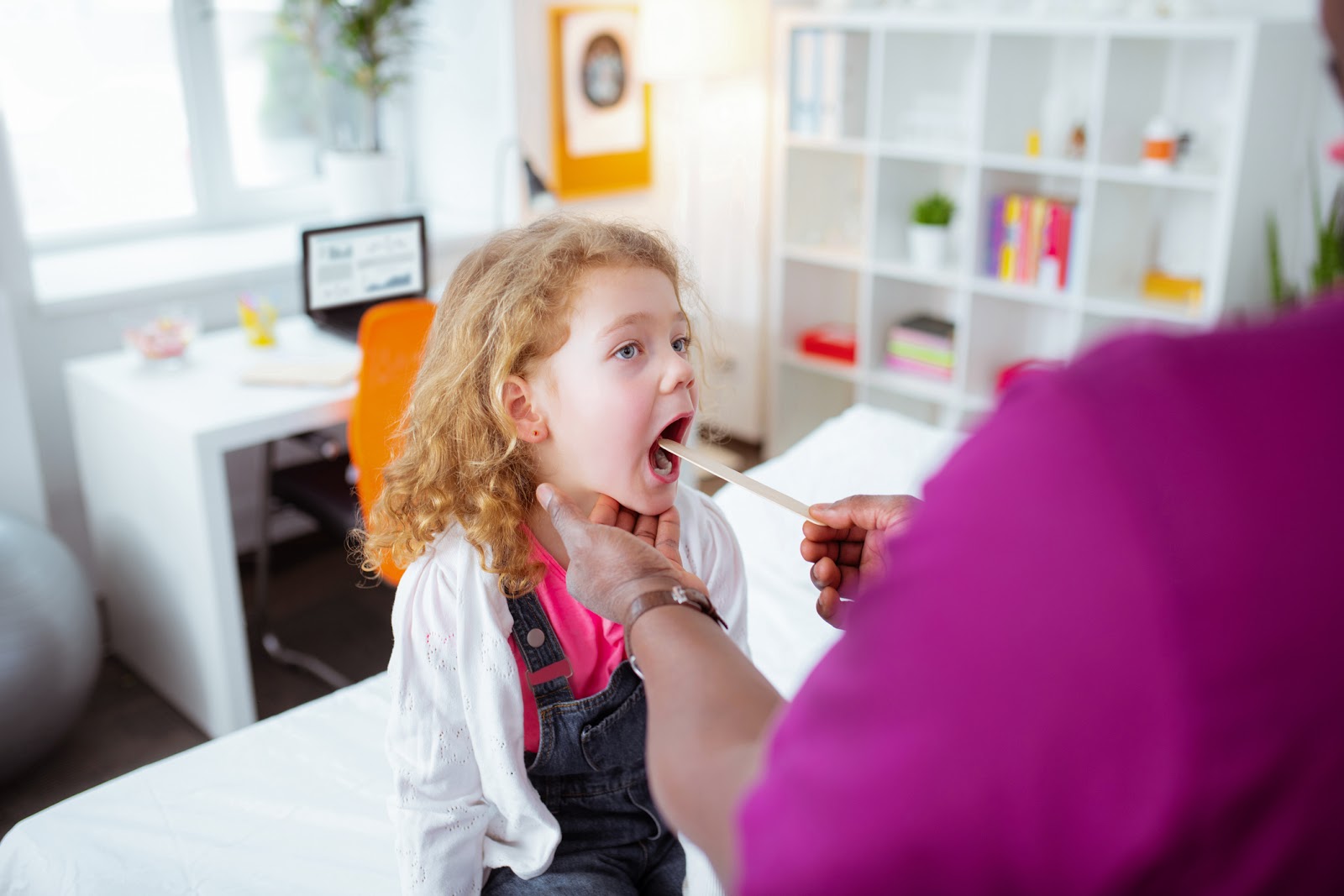What to give a child with a sore throat

What to give a child with a sore throat
Sore throats are common no matter what your age and can range from painful to just annoyingly scratchy. While adults may have more remedies available, such as sucking lozenges and gargling salt water, these treatments should be avoided in children as they are considered potential choking hazards[1]. With this in mind, how can you treat a sore throat in a child?
What can you give a child for a sore throat?
There are some over-the-counter options that you can give to your children to relieve the pain of a sore throat, however, you should always read the instructions beforehand and follow them carefully to ensure the correct dosage and treatment. Below, you can find some of the best medical options.
Throat spray
Throat sprays for children can be used by those aged six plus and work fast to relieve the pain of a sore throat. These sprays generally contain a very small amount (less than one per cent) of Benzocaine, a local anaesthetic that helps to numb the area, along with other ingredients and flavours to make the spray taste good too. The solution can be applied directly to the back of the throat using the handy applicator. This process can be repeated every two to three hours as the anaesthetic wears off, but you should avoid applying it more than eight times in 24 hours and for more than three days in a row. Sprays should not be used in children under the age of six. If your child is over aged 12, they will be able to use the adult equivalent.
Paracetamol for children
Paracetamol may also help to ease the pain of a sore throat in children[2]. It’s recommended that you avoid giving paracetamol in tablet form due to the risk of choking. Instead, there are plenty of liquid varieties available. As with the throat spray, read the instructions carefully and ensure you give your child the correct dosage. The amount you should give them could depend on their age.
What soothes a sore throat for a child?
There are some other options besides medication to help soothe your child’s sore throat. These work best when used alongside the medication listed above to reduce the pain.
Cold foods and drinks
Cold foods, such as ice lollies, can help to soothe and numb the area. Children shouldn’t suck lozenges but sucking an ice lolly may alleviate their symptoms (and may cheer them up, too). If you’re providing them with plenty of fluids, as recommended above, you could add ice cubes to ensure that the child remains hydrated while also soothing the area.
Eat soft foods
When you’re preparing a child’s food for lunch and dinner, consider giving them softer food items, such as mashed potato, pasta-based dishes, yoghurt or cooked vegetables. These foods will be easier to swallow compared to items such as toast, which can be scratchy and may aggravate the area further.
Rest
Sore throats are generally a symptom of the common cold, and the best way to fight a cold off is to rest. You should try to make sure that your child is sleeping enough and resting during the day.
Can I take my child to nursery with a sore throat?
Knowing when to keep your child out of nursery or school can be tricky. Generally, the government and the NHS recommend sending your child to nursery when they have a cough, sore throat or cold[3]. These kinds of viruses, while annoying for children and their parents, aren’t dangerous to other kids. In fact, it’s likely that nursery or school is where they caught the virus in the first instance.
If your child’s cold persists, or they have symptoms such as a fever or ear infection, you should keep them off school and consult a doctor for advice.
You may be able to prevent future illnesses in your children by taking some precautions. These include:
- Regular hand washing
- Encouraging children to use their own utensils and drinkware
- Introducing vitamins to their diet, such as Vitamin C supplements
- Encouraging children to eat vegetables.
Resources:
[1] https://www.nhs.uk/conditions/sore-throat/#:~:text=How%20to%20treat,rest
[2] https://www.nhs.uk/medicines/paracetamol-for-children/
[3] https://www.nhs.uk/live-well/healthy-body/is-my-child-too-ill-for-school/

